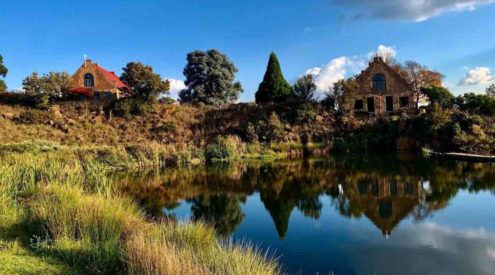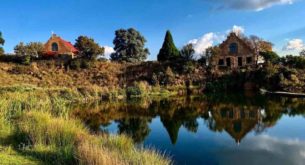Two Cape clawless otters played along Robberg Beach and were captured on video.
Plettenberg Bay Tourism shared the video of the couple who were a rare treat for onlookers. Often those walking along the sand will spot Otter footprints but seeing them play in the sand is uncommon.
‘What a wonderful world! Toy Black spotted this pair of Cape clawless otters on Robberg Beach – what an incredible encounter. These reticent, agile mammals are a rare sight, indeed – although their footprints in the sand are often seen by early morning walkers. What a special encounter in Plettenberg Bay,’ explains Plettenberg Bay Tourism.
What a wonderful world! Toy Black spotted this pair of Cape clawless otters on Robberg Beach – what an incredible…
Posted by Plettenberg Bay Tourism on Sunday, 2 August 2020
The Cape clawless otter, also known as the African clawless otter (Aonyx Capensi), is a robust animal that is both nocturnal and diurnal. It is the second-largest freshwater species of water after the South American otter.
Otters are well known in this region and even have a hiking trail named after them.
The world-famous Otter Trail, the oldest hiking trail in South Africa is named after these cheeky creatures. It traverses over 40km along the coastline between Storms River Mouth and Nature’s Valley and was established in 1868.
However, the video of these two having fun brings to the forefront that their species is under threat. The population of the Cape clawless otter has been decreasing for six years and has been listed as near threatened by the International Union for Conservation of Nature (IUCN).
‘Although this species has a large distribution they are restricted to areas of permanent fresh water, offering good shoreline cover and an abundant prey base. Thus while the distribution range is large the spatial size of their occupied habitats is much smaller and unknown, particularly due to the widespread habitat destruction and pollution problems reported for much of the African continent,’ says the IUCN.
Image credit: screenshot from video















